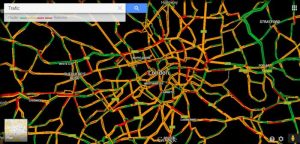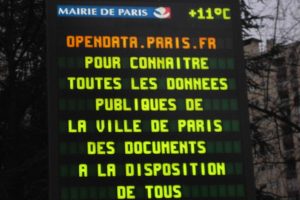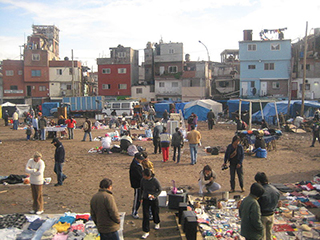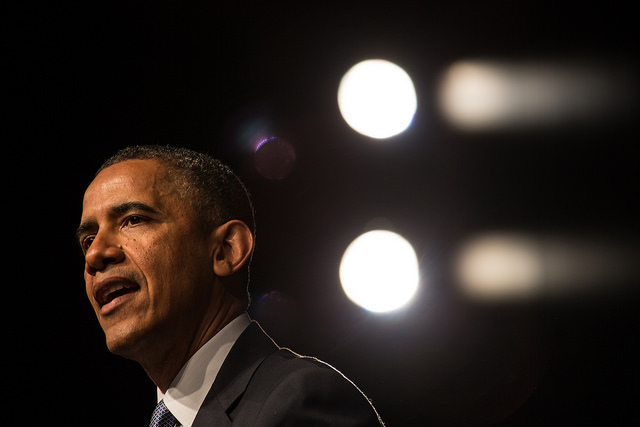


Directory of Urban Research
9 October 2017
Divided cities: between fragmentation and integration
12 October 2017Political science PhD Antoine Courmont wrote his thesis on the effects of Open data on urban government. His thesis was developed in partnership with the Metropolis of Lyon (Cifre), where Antoine served as Open data officer between 2012 and 2015. Today he is the research leader of the Cities and digital technology chair at Sciences Po’s urban school.
The appearance of a new tool: data

Open data @Ecointeligencia
While municipal administrations have always produced and used government knowledge, indicators and statistics, beginning in the mid-2000s new elements appeared in urban government: data. The miniaturization of sensors, the decrease in storage costs and the considerable increase in computing power led to a proliferation of urban data. Considering data as a research subject enables the identification of several developments in the government of cities linked to digital technology.
Service optimization

Gmaps. Circulation à Londres. Capture écran
First, the wealth of data has given rise to new modes of action. They enable the optimization of infrastructure management and the development of new services and of more detailed representations of the city and urban practices. For example, the collection in real time of digital traces offers a much more precise knowledge of individual behavior that is conducive to the implementation of public policies based on algorithmic governance. These developments are apparent in the transportation and energy sectors, where the tracking of individual activity offers new means of regulating networks by acting on individual demand to encourage a modal shift or reduction in energy consumption.
The arrival of new actors
Concept of Internet of things and another future technologies for living de Irina Strelnikova, Shutterstock
Data is also transforming methods of coordination among actors in urban governance, especially the relationships between public and private actors. Open data allows private actors to offer services that draw on public data. An example is the transportation sector, where businesses are offering new information services that supplement public ones, but can also conflict with public policies. Furthermore, the collection of digital traces that people leave, particularly through their cellphones, has allowed new actors to enter the urban field. Digital economy platforms enable this in a completely innovative way since they involve service users without any link to public authorities. The Waze navigation tool is a particularly interesting example in this respect, since it challenges policies regulating road traffic established by the metropolises. While the service sometimes facilitates traffic fluidity, in other cases it can cause network managers to lose control over their infrastructure by proposing itineraries that go through residential zones. In both cases, public authorities must take into account these new actors as they define, implement, and regulate public action in this digital era.
Between regulatory public policies and innovation

Opendata à Paris. Panneau d’affichage. Creative commons.
As a result, data tends to become a government issue and the subject of targeted policies. While public policies are increasingly relying on information flows, the regulation of data has become crucial to maintaining control over these policies. Thus, several metropolises, like Lyon and Paris, have implemented data governance strategies at the territorial level. Further analysis is needed on the forms and terms of territorial data governance as well as the capacity of public actors to regulate private actors’ production and use of “general interest data”.
Antoine Courmont, Politiques des données urbaines: ce que l’open data fait au gouvernement urbain, [Urban data policies: how open data is affecting urban government] (full text), PhD thesis supervised by Dominique Boullier




